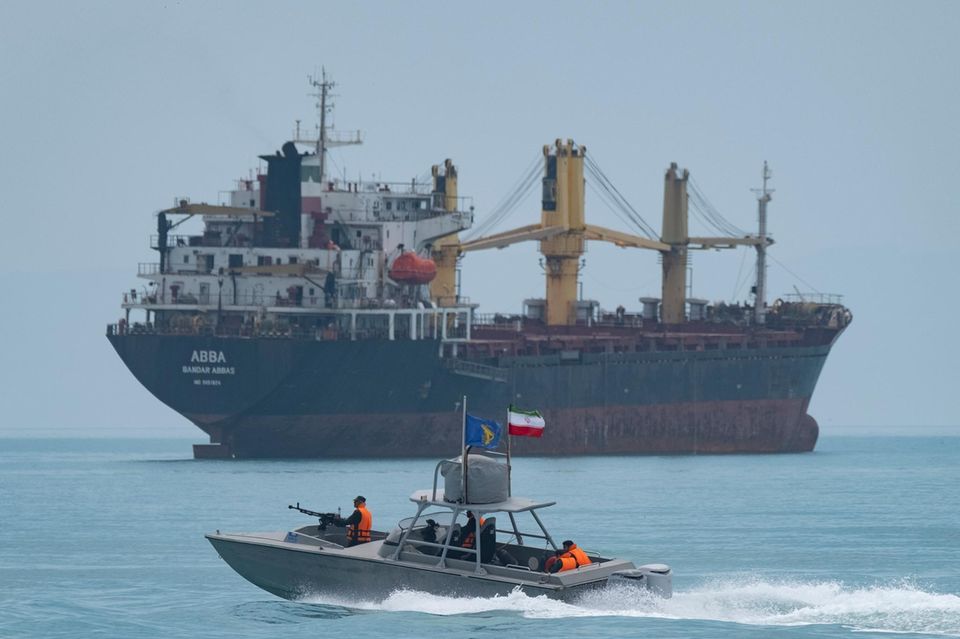War in the Middle East: Escalation in Iran: Fears of an oil price shock are spreading

Following the US's entry into the war in Iran, oil prices surged on Monday – albeit only briefly. Economists, however, warn of massive consequences for the global economy in the event of further escalation.
With the US intervention, the war between Iran and Israel has reached a new level of escalation. Economists fear massive consequences for the global economy. "With the US entry into the war, a negotiated solution seems unrealistic," Samina Sultan, Senior Economist at the German Economic Institute (IW), told Capital. "The situation is highly volatile, and this uncertainty alone is causing oil prices to rise."
After the US intervened in the war with several bomb attacks on Iranian nuclear facilities overnight into Sunday, the price of North Sea Brent crude briefly rose by about 5.7 percent to $81.40 per barrel. The stock markets reacted relatively calmly. "It is probably also a sign of the times we live in that a US attack on nuclear facilities did not immediately lead to sell-offs and panic on the financial markets," writes Carsten Brzeski, chief economist at ING Bank. However, many investors are still waiting for possible retaliatory measures from Iran.
Strait of Hormuz: Neuralgic point of world tradeThe Strait of Hormuz, in particular, is coming into focus. "The Strait of Hormuz embodies the vulnerability of our globalized energy supply," said Claudia Kemfert, head of the Energy, Transport, and Environment Department at the German Institute for Economic Research (DIW). The strait, just 50 kilometers wide, between Iran and Oman is considered a neuralgic point of world trade; 21 million barrels of oil and one-third of the world's traded liquefied natural gas pass through it every day. "The concentration of these energy flows in a single passage makes it clear how fragile the foundations of our energy security are," said Kemfert. The lesson must be to advance the energy transition in Germany.
Lisandra Flach, director of the Ifo Center for International Economics, also sees significant consequences for the global economy from a blockade of the Strait of Hormuz or an escalation of the conflict. While German imports themselves would be barely affected, higher oil prices and their impact on global value chains would also affect the German economy: "Higher oil prices lead to rising production costs, make imports more expensive, and drive inflation."

Iran's threat to block the Strait of Hormuz could have massive consequences. The price of North Sea Brent crude could rise to $120 per barrel within a short period of time, write economists Robin Winkler and Marc Schattenberg of Deutsche Bank Research. The consequences would be higher import costs and a rising inflation rate. "The current economic recovery would falter," Winkler and Schattenberg write in a client note.
Iran also needs the straitING economist Brzeski takes a similar view. "And even if it were possible to divert some flows, an effective blockade of Hormuz would lead to a dramatic change in the oil outlook and plunge the market into a deep deficit," Brzeski writes in his client email. "The spare OPEC production capacity would not help in this situation, as the majority of it is in the Persian Gulf. So these flows would also have to flow through the Strait of Hormuz." He even fears an oil price of $150 per barrel for Brent crude in the event of a prolonged blockade.
IW economist Sultan believes it's premature to draw conclusions about the German economy. "That depends on how long the war lasts," says Sultan. "But one thing is also clear: it's not stimulating the economy." She considers a complete blockade of the Strait of Hormuz unlikely, as Iran itself also transports oil through the strait. "The US military presence is likely to make a complete blockade more difficult. Targeted attacks on certain tankers or even the oil infrastructure are more likely – and that would also have an impact."
ECB interest rate cut in July “clearly off the table”The global economy would likely be able to withstand a short-term price increase and continue with moderate growth, Cyrus de la Rubia, chief economist at Hamburg Commercial Bank, told the Reuters news agency. "However, if the energy shock persists for six months or longer, global stagflation or even recession can be expected."

In Europe, the new situation is likely to pose challenges for central banks. De la Rubia expects that the US Federal Reserve and the ECB would only cut interest rates slightly even in a recession, "for fear of losing credibility in the fight against inflation." ING economist Brzeski also wrote: "A rate cut in July is now clearly off the table, and even the September decision could prove more controversial than expected after the June decision."
capital.de





